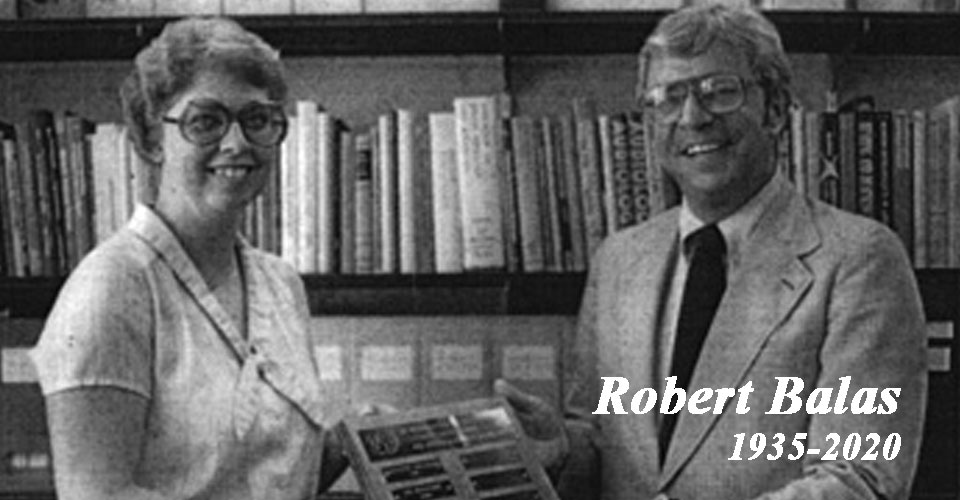

Robert Balas, Ph.D., former associate dean for the UW-Stevens Point School of Communication Sciences and Disorders, passed away April 21, 2020, at the age of 84.
An audiologist, Balas joined the university as associate dean at the start of the 1976-77 academic year. In seven years (1976-83) at the helm of the program, Balas led all new program development, revision, re-organization and change in operation. He was in charge of writing grant proposals, budget determinations, curricular offerings and teaching schedules, certifying that students completed the requirements of the major and overseeing the work of the RAPTS (retention, appointment, promotion and tenure) committee.
Balas assumed an additional hat during the 1979 year, that of the president of the Wisconsin Speech and Hearing Association.
Reflections of Robert Balas About His Era
(Written statement, Feb. 26, 2009)
When I think of being the associate dean what really stands out in my mind were the demands on one’s time. It seemed that everyone needed or wanted something from me: information, data, completed forms, applications, grants, solutions, alternatives, feedback, decisions, changes, input, financial support, etc. The “inbox” always seemed full. I tried to empty it before going home.
One of my major goals was to maintain and elevate the perceptions of the School of Communicative Disorders and its programs by others, including the college, the University, WSHA, ASHA, and the public at large. I was very proud of the school.
When I think about faculty, the clinical staff, and the supportive staff, my first thought is that they were all student-program oriented. They were hard working, willing to share information, willing to criticize (sometimes with a sharp edge), and willing to contribute. They were honest, and demanded quality from themselves and others. To me, they were kind, generous, dedicated, and just fine people, but not without idiosyncrasies. The faculty and supervisory staff always seemed to encourage, if not urge, the students to perform at the highest level possible.
I think the majority of our students, both undergraduate and graduate, accepted the challenge presented by the faculty and supervisory staff. They seemed ready and motivated to deal with the hurdles presented to them. They usually came to us with a desire to help others, and a desire to help children and adults participate as well as possible in the human communication process. There are many students I will never forget. They will remain in my memory bank. They, to me, were just special people.
